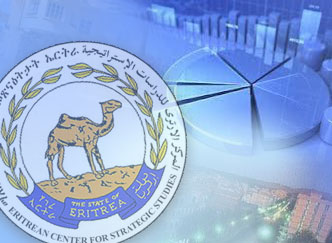April 2, 2016
EU Parliament Resolution On Eritrea: Misinformation or Political Bias?
 The European Parliament’s resolution on Eritrea (2016/25999(RSP)) is appalling for its gratuitous, and grossly distorted, depiction of facts and events in the country. It is indeed a sad sign of our times that an august body with that stature can so casually ignore minimum standards and norms of objectivity and civility to freely insult a small foreign people and country.
The European Parliament’s resolution on Eritrea (2016/25999(RSP)) is appalling for its gratuitous, and grossly distorted, depiction of facts and events in the country. It is indeed a sad sign of our times that an august body with that stature can so casually ignore minimum standards and norms of objectivity and civility to freely insult a small foreign people and country.
The operating paragraphs in the preamble to the EU Parliament resolution represent a catalogue of all the invective peddled against Eritrea by “regime-change” elements and other detractors who have long harboured malice against the independence and sovereignty of the country.

This is amply illustrated by the following few examples:
- The EU Parliament resolution asserts that “there has been even greater repression and even more violations of human rights” in Independent Eritrea than during the colonial times. (This astounding statement is derived from notorious activists, with links to certain sponsors of the resolution, who have historically opposed and still crave to reverse Eritrea’s independence).
- The resolution alludes to a “demonstration of hundreds of Eritrean refugees in front of the African Union Headquarters … accusing long-time Eritrean President Isaias Afwerki … and urging the African Union to take action”; (The EU Parliament prefers to talk about a single demonstration, in Addis Ababa of all places, that was vividly orchestrated by the Ethiopian regime to further its pronounced and subversive agenda of “regime-change” while ignoring the myriad demonstrations by tens of thousands of Eritreans in its own capitals against the COI and related policies of harassment and demonization of the government and people of Eritrea).
- The EU Parliament refers to torture practices of human traffickers in Sinai and blames the government of Eritrea; (but it conveniently glosses over Eritrea’s request to the UN, through the letter of President Isaias, to launch a comprehensive investigation of this abominable act which implicates certain foreign powers).
- The resolution refers to dubious figures “on the monthly rate of Eritrean migrants”; (but it ignores misplaced UNHCR and EU politically-motivated policies of unwarranted granting of “automatic asylum” to Eritrean economic migrants).
- The EU Parliament resolution blabbers about widespread “discrimination and violence against women that is pervasive in all areas of Eritrean society”. (This is too ludicrous to merit elaboration but it does underscore the level of ignorance or malice towards Eritrea by the sponsors of the resolution).
- The resolution even misquotes President Isaias’s interview with the local press in January this year to accuse the government of “downplaying” the El-Nino induced drought. (President Isaias had described the drought situation and the consequent harvest shortfall in comprehensive and unequivocal terms. But he also elaborated in detail government preparations, prepositioning of food supplies and other mitigating measures and coping mechanisms).
A comprehensive response to the litany of distorted facts and accusations included in the EU Parliament resolution will be pointless and too long for this statement. And in any case, Eritrea’s comprehensive rebuttal of these preposterous, recycled, accusations is already in the public domain. The EU Parliament could have also referred to reports of government delegations from several EU Member States who have visited the country in recent months.
As indicated above, Eritrea is aware that there are interest groups within the European Parliament who have never accepted Eritrea’s independence in the first place and who harbor agendas that are alien to human rights, the well-being of the Eritrean people as well as to the interests of peace and stability. The EU Parliament resolution indeed fails to mention the threat to regional peace and stability caused by Ethiopia’s violation of international law and continued occupation of sovereign Eritrean territories.
Be that as it may, partisan politics does not give the EU Parliament a carte blanche to sully Eritrea and its people. Eritrea remains engaged in constructive dialogue with the European Union. This is a two-way street where both parties discuss, with the requisite seriousness and responsibility, matters of mutual concern. The European Parliament can be a partner in this constructive dialogue if it can indeed muster the political goodwill and appropriate mindset. Serving as a gullible mouthpiece for subversive agendas against Eritrea can only corrode its credibility and relevance.
Ministry of Foreign Affairs
Asmara, 31 March 2016



